GENEVA / SEOUL / TOKYO (25 November 2016) A United Nations rights expert has appealed to Governments and civil society organizations to put people squarely at the centre of their approaches to improve the human rights situation in the Democratic People’s Republic of Korea (DPRK).
The Special Rapporteur on the situation of human rights in the DPRK, Tomás Ojea Quintana, concluded a 10-day visit to the Republic of Korea and then to Japan – his first trip to North-East Asia after being appointed by the United Nations Human Rights Council in August 2016.
The Special Rapporteur said he had been privileged to hear first-hand from people who had left the country. “I was particularly moved by their testimonies as well as their resilience. Talking to these victims has allowed me to understand some of the human rights violations that motivate their decision to leave,” Mr. Ojea Quintana said. “It was remarkable that these people were well aware of their rights. Despite all the challenges that they have been through, they now look forward to the future.”
“I also met people who have lost trace of close relatives as a result of abductions or displacement during the Korean War. Their suffering is enormous and the urgency for the solution is accelerating with advancing age of victims and their families”, the independent expert told reporters in Tokyo today.
The expert also stressed the need to hold perpetrators of human rights violations
accountable for their actions, which he said had been reflected in his discussions with government agencies in the Republic of Korea and Japan. Pursuing accountability could also deter further violations, he added.
Some civil society groups, the expert noted, were documenting cases and focusing on accountability, while others were trying to expand humanitarian and human rights initiatives by pushing for more engagement with the DPRK authorities.
He said both approaches were complementary and all civil society groups deserved his support.
“I do not see that these two ways – pursuing accountability and seeking engagement - exclude each other,” said Mr. Ojea Quintana. “The situation in the DPRK is extremely complex and requires a multi-faceted approach. People must always remain central to all these efforts.”
The Special Rapporteur will deliver a full report on his mission to the Human Rights Council in March 2017.
Read the Special Rapporteur’s full statement: http://www.ohchr.org/EN/NewsEvents/Pages/DisplayNews.aspx?NewsID=20934&LangID=E
Check the Special Rapporteur’s remarks at the end of his visit to the Republic of Korea, on 22 November 2016 : http://www.ohchr.org/en/NewsEvents/Pages/DisplayNews.aspx?NewsID=20917&LangID=E
ENDS
Mr. Tomás OJEA QUINTANA (Argentina) was designated as the Special Rapporteur on the situation of human rights in the DPRK by the UN Human Rights Council in 2016. Mr. Ojea Quintana, a lawyer with more than 20 years of experience in human rights, worked for the Inter-American Commission of Human Rights, and represented the Argentinian NGO “Abuelas de Plaza de Mayo” in cases concerning child abduction during the military regime. He is a former Head of OHCHR human rights programme in Bolivia, and served as the UN Special Rapporteur on the situation of human rights in Myanmar from 2008 to 2014. Learn more, log on to: http://www.ohchr.org/EN/HRBodies/SP/CountriesMandates/KP/Pages/SRDPRKorea.aspx
The Special Rapporteurs are part of what is known as the Special Procedures of the Human Rights Council. Special Procedures, the largest body of independent experts in the UN Human Rights system, is the general name of the Council’s independent fact-finding and monitoring mechanisms that address either specific country situations or thematic issues in all parts of the world. Special Procedures’ experts work on a voluntary basis; they are not UN staff and do not receive a salary for their work. They are independent from any government or organization and serve in their individual capacity.
UN Human Rights, country page – DPRK: http://www.ohchr.org/EN/countries/AsiaRegion/Pages/KPIndex.aspx
OHCHR Seoul Office: http://seoul.ohchr.org/EN/Pages/HOME.aspx
For additional information and media requests, please contact in English, Tarek Cheniti (+82 2 725 3522 / tcheniti@ohchr.org) or in Korean, YounKyo Ahn (+82 2 725 3523 / yahn@ohchr.org)
For media inquiries related to other UN mandates:
Xabier Celaya, UN Human Rights – Media Unit (+ 41 22 917 9383 / xcelaya@ohchr.org)
For your news websites and social media: Multimedia content & key messages relating to our news releases are available on UN Human Rights social media channels, listed below. Please tag us using the proper handles:
Twitter: @UNHumanRights
Facebook: unitednationshumanrights
Instagram: unitednationshumanrights
Google+: unitednationshumanrights
Youtube: unohchr
